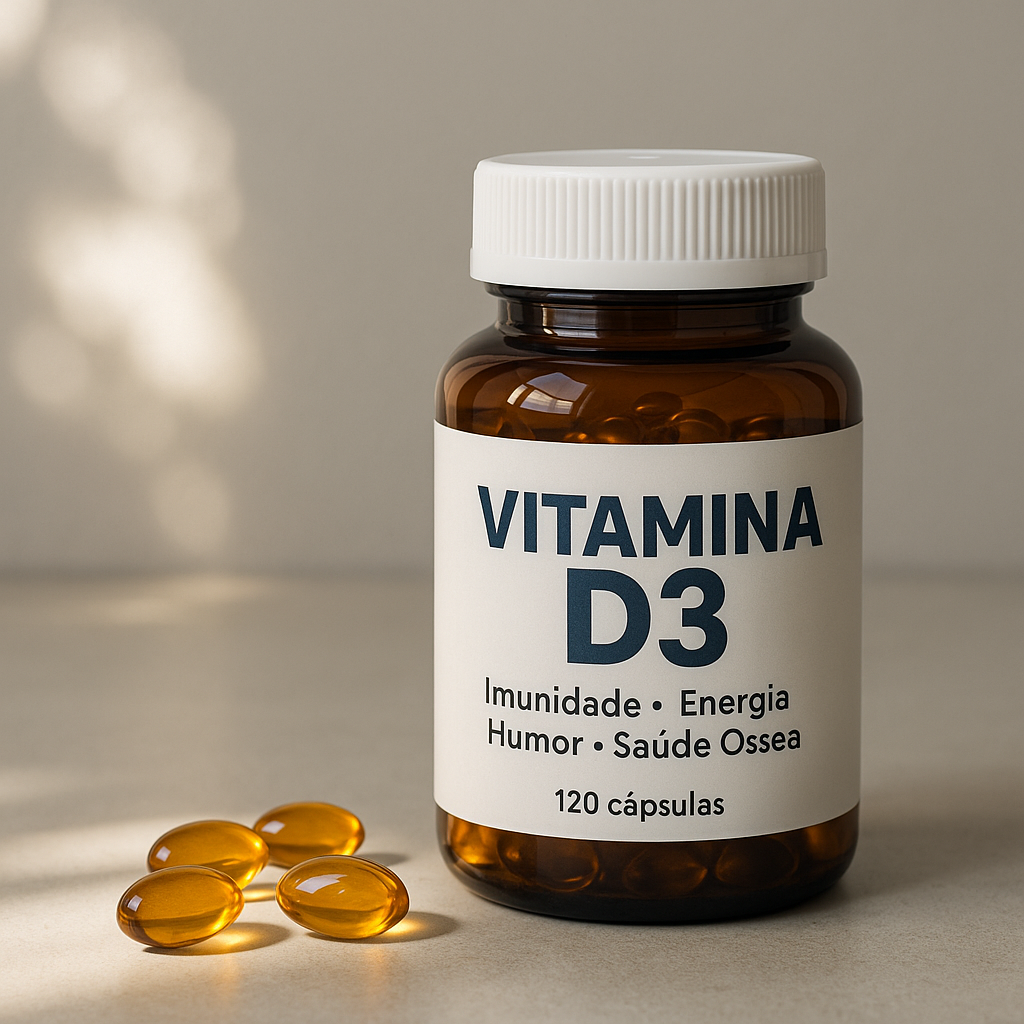Far beyond strengthening bones, Vitamin D3 plays a vital role in immune system function, mood regulation, metabolism, and even hormone production. No wonder it’s called the “sunshine vitamin”—and its deficiency is linked to a range of physical and emotional imbalances.
In this article, you’ll discover what Vitamin D3 is, why it’s so important for the human body, and how supplementation can deeply and lastingly transform your health.
What Is Vitamin D3?
Vitamin D3 (cholecalciferol) is the biologically active form of vitamin D. It’s naturally produced by the skin when exposed to UVB rays from sunlight—but can also be obtained in smaller amounts from supplements and certain foods.
Unlike typical vitamins, D3 acts more like a steroid hormone, with receptors found in nearly every cell in the body.
What Does Vitamin D3 Do in the Body?
- Regulates calcium and phosphorus absorption in the bones
- Strengthens the immune system
- Modulates hormone and neurotransmitter production
- Supports mood and emotional well-being
- Helps maintain muscle mass
- Contributes to cardiovascular and metabolic health
Key Benefits of Vitamin D3 Supplementation
1. Immune System Support
D3 activates immune cells like T-cells and macrophages, making the body more efficient at fighting viruses, bacteria, and inflammation.
People with adequate D3 levels tend to:
- Get sick less often
- Experience milder cold and flu symptoms
- Recover faster from infections
2. Bone Health and Osteoporosis Prevention
Vitamin D3 is essential for calcium to bind to bones. Without it, even if calcium is consumed, the body can’t use it properly.
It helps prevent:
- Osteopenia and osteoporosis
- Fractures in the elderly
- Bone loss during menopause
3. Mood and Mental Well-Being
Vitamin D3 deficiency is directly linked to:
- Mood disorders
- Seasonal depression
- Chronic anxiety
- Lack of motivation and low energy
Supplementation can help balance the neuroendocrine system, especially during low sunlight exposure periods.
4. Hormonal Support
D3 supports the production and regulation of hormones such as:
- Testosterone
- Estrogen
- Cortisol
- Melatonin
That’s why it’s often included in supplements for vitality, libido, sleep, and hormonal balance.
5. Muscle Function and Fall Prevention
Studies show that Vitamin D3 helps:
- Maintain muscle strength
- Improve motor coordination in the elderly
- Reduce the risk of falls and related injuries
Why Is Deficiency So Common?
- Limited sun exposure (or excessive sunscreen use)
- Darker skin (which synthesizes less D3)
- Diets low in natural vitamin D sources
- Use of medications like corticosteroids or anticonvulsants
- Gut health issues affecting absorption
It’s estimated that over 60% of the global population has insufficient Vitamin D3 levels.
Ideal Dosage and Supplement Forms
Needs vary by age, weight, lifestyle, and sun exposure.
- Common daily doses: 1,000 to 5,000 IU
- In cases of deficiency: higher doses may be used short-term under professional guidance
- Available in capsules, drops, or sublingual sprays
Tip: Always take Vitamin D3 with a meal containing healthy fats for better absorption.
Vitamin D2 vs. D3: Which Is Better?
- Vitamin D2 (ergocalciferol): plant-based, less effective
- Vitamin D3 (cholecalciferol): animal-derived, more bioavailable and effective
Vitamin D3 is the recommended form for high-performance health supplementation.
Smart Combinations and Synergies
To boost the effects of D3, pair it with:
- Vitamin K2 (MK-7): directs calcium to bones and prevents arterial buildup
- Magnesium: essential for D3 activation
- Zinc and Vitamin C: reinforce immunity
- Omega-3: improves absorption and reduces inflammation
Precautions and Contraindications
- Supplementation should be monitored in people with kidney issues or high calcium levels
- Regular blood testing is ideal for adjusting the correct dose
- When used properly, it’s extremely safe
Who Should Take Vitamin D3?
- People with limited sun exposure
- Individuals with low immunity or autoimmune conditions
- Women in menopause
- Elderly adults and growing children
- Anyone seeking hormonal balance, energy, and overall wellness
Final Thoughts
Vitamin D3 is a true vibrational key to optimal body function. Its impact goes far beyond bone health—it influences your brain, immune system, hormones, and emotional state.
Supplementing D3 consciously is more than a nutritional choice—it’s a step toward an energized body, a clear mind, and a more vibrant life.
